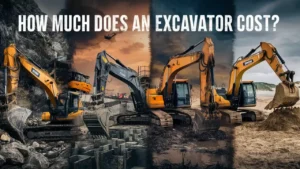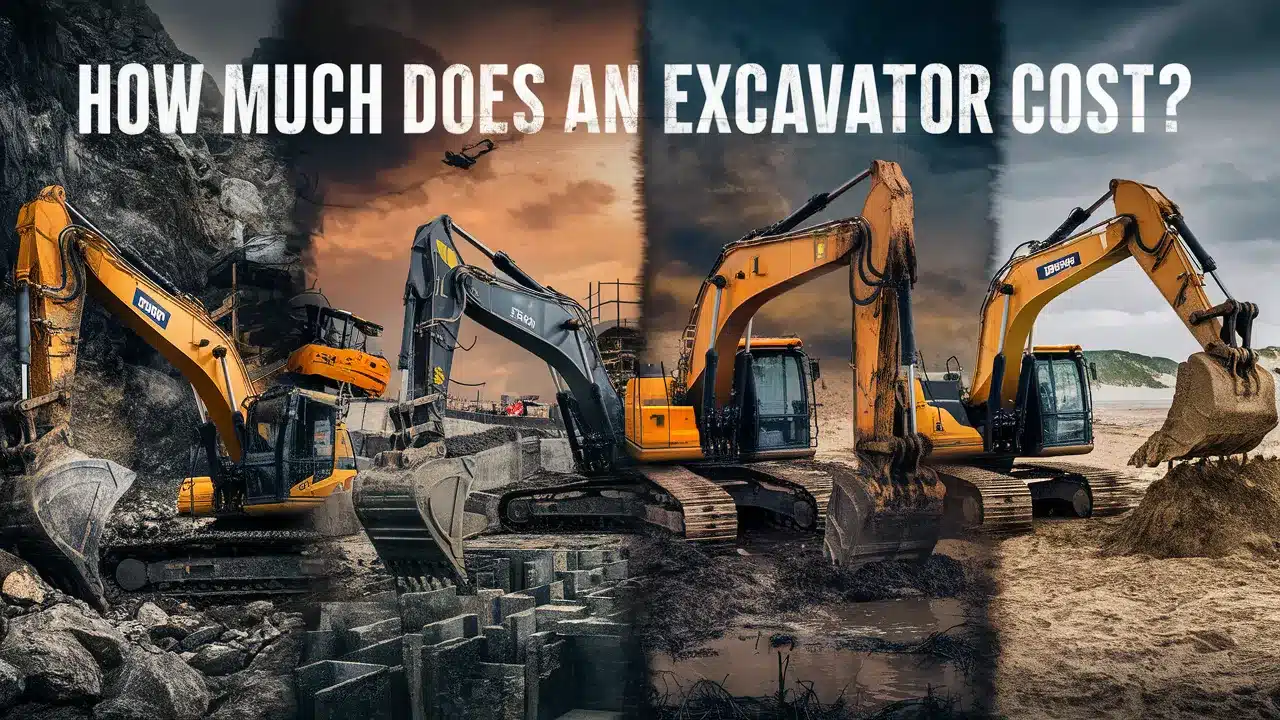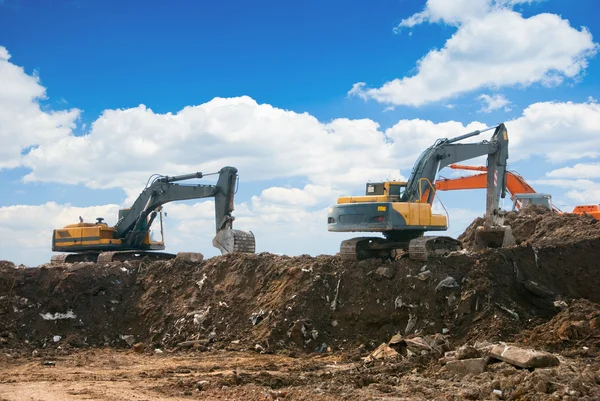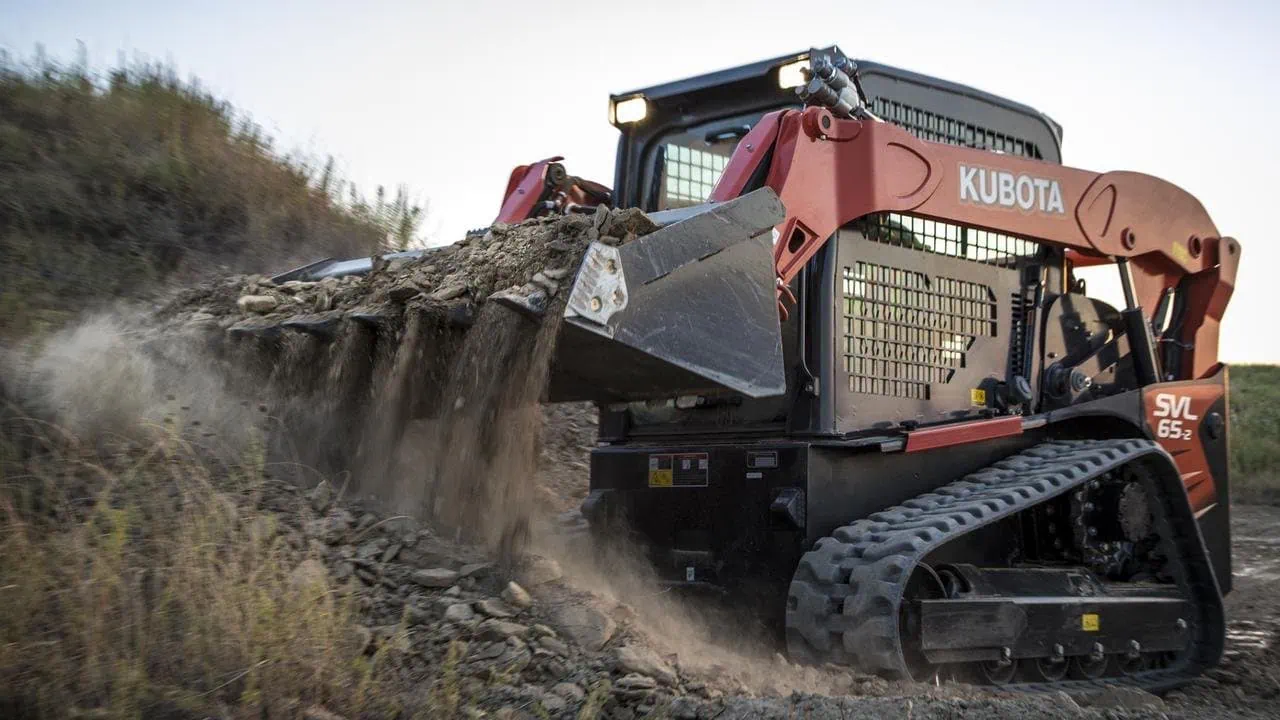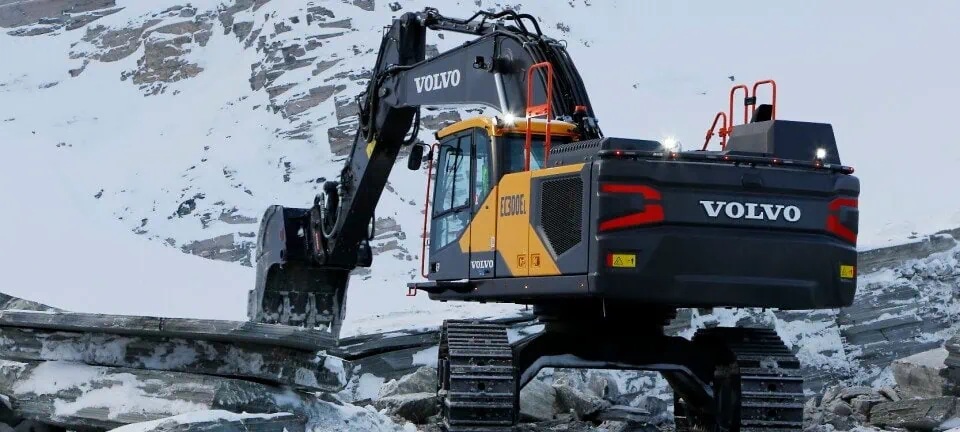When buying construction equipment, the most important decision you’re going to make is the company you buy that equipment from. Whether you realize it or not, who you buy your equipment from will have a massive impact on your results when buying construction equipment.How do you make sure you’re working with the right company to buy your construction equipment?
Choosing the right construction equipment supplier is crucial for your project’s success. To make the right decision, focus on factors like equipment quality, supplier reputation, after-sales support, and transparent communication. A reliable supplier will not only offer quality machines but also provide ongoing support, ensuring your equipment is well-maintained and ready for use when needed. By evaluating these key elements, you can avoid costly mistakes and partner with a supplier that will help your business thrive.
Now, let’s break down the specific qualities you want to look for in a supplier when trying to find a reliable construction equipment supplier.

Table of Contents
ToggleWhat to Look for in a Reliable Construction Equipment Supplier?
Selection of the proper Construction equipment supplier goes beyond getting the best price. It’s about making sure that the supplier you choose gives you quality, reliability, and long-term support. Here are the main things you want to consider when you’re looking at suppliers:
Equipment Quality and Condition
The quality and condition of the equipment are key. When buying construction equipment supplier, whether it’s new equipment, or even used equipment, you need to know the condition. You need to know what it’s been through. You need to know how it’s been taken care of. You need to know the age, the hours on the machine, the make, the model, all the things that you would want to know about it. A good supplier is going to give you all the specs of the machine, the age of the machine, what type of work it’s been in, the maintenance history, and any refurbishments that have been done.
Age and Usage
The age of the equipment is important. An older machine, even if it’s been well maintained, may have worn-out parts. You want to know the hours on the machine and what type of work it’s been involved in to gauge how much life it has left.
Maintenance and Repairs
A reputable construcyion equipment supplier will provide you with the maintenance history of the machine. Regular maintenance is a good sign that the machine has been taken care of. However, equipment that has had specific repairs and parts replaced can sometimes offer good service if the repairs have been done properly.
Refurbished Equipment
Many suppliers offer refurbished equipment. If you’re looking for a cost-effective solution, this can be a good option. Just be sure to get the details on how the refurbishment was done and what type of warranty comes with the refurbished machine. Always be sure that you are getting a quality piece of equipment, even if it’s refurbished.

Supplier Reputation and Reviews
The reputation that the construction equipment supplier has in the market can tell you a lot about them. Look for reviews, testimonials, case studies–any content you can find from other customers that have purchased equipment from the supplier. Also, see if the supplier has certifications that indicate their equipment meets certain standards.
Online Reviews and Testimonials
Take a look at Google reviews, Trustpilot, or industry-specific forums to see what other customers are saying. Look for patterns in the reviews and whether or not they are consistent with what you would expect from a reliable supplier.
Industry Recognition and Awards
Many suppliers receive awards or recognition from industry or from the manufacturers that they work with. Look to see if your supplier has received any awards as that is generally an indicator that they are a reliable supplier.
Personal Recommendations
Talk to colleagues or people you know in the business. If there’s someone who has purchased equipment like you’re thinking about, get a personal recommendation from them. A personal recommendation is
worth its weight in gold.
After-Sales Support
It doesn’t end after you buy the machine. You want to think beyond the purchase to the after-sales support. What kind of support can the supplier give you? What kind of maintenance can they offer? What about parts and making sure that they have what you need when you need it?
Warranty and Return Policy
Make sure you understand the type of warranty you’re getting, what it covers, and for how long it lasts. A supplier that provides a good warranty can give you peace of mind if something happens to go wrong with the machine. Find out what the return policy is on equipment if you need to return something that’s not functioning as it should.
Service and Spare Parts Availability
It’s important to know that the supplier is going to have parts available when you need them. How soon can you get a part if something goes wrong? A supplier that stocks genuine parts will keep you from having long downtimes waiting for replacement parts.
Maintenance Contracts
Does the supplier offer maintenance contracts or service agreements? Often, you can sign up for a maintenance agreement where a supplier will service the equipment, do the oil changes, and make
sure everything is running well for you. A long-term service agreement can save you money and ensure that your equipment is always in top condition.
Transparent Communication
You want someone who’s going to talk to you. You want someone who’s going to respond to your queries. You want someone who’s going to tell you the details about the equipment that you’re buying. You want a supplier who’s going to work with you on logistics, delivery times, and payment options. Bad communication can lead to misunderstandings and delays. Find a company that makes good communication a priority.
Pre-Sale Consultation
Before you make a purchase, you want to make sure that a supplier is willing to consult with you. They should talk to you, listen to you, and guide you based on what you tell them about your project. That way you end up using the right tool for the job.
Post-Sale Communication
Once you make a purchase, communication doesn’t stop. You want to be able to communicate back and forth with a supplier about when things are going to be delivered, how you’re going to pay them, and what kind of service you’re going to get. The easier it is to communicate with a supplier, the better.

How to Evaluate the Quality of Construction Equipment?
One of the things you’ve got to do is be able to evaluate the quality of the construction equipment before you buy it. Here’s a step-by-step guide for you.
Check for Certification and Compliance
Look for certification marks like ISO, CE, EPA, or ones specific to your geographic area that show the construction equipment supplier meets safety and environmental standards. These certifications indicate the equipment is built to last and meets industry standards.
ISO Certifications
Look for ISO certifications such as ISO 9001 which ensures that the supplier has quality management processes in place. This is an international standard for quality management.
CE Marking
If you’re in a market that requires CE marking, it’s an indicator that the equipment meets safety, health, and environmental requirements of the European Union.
EPA Certification
If you’re using the equipment in the United States, look for EPA (Environmental Protection Agency) certification. This is especially important for compliance with U.S. environmental regulations related to emissions.
Inspect the Equipment Personally or via a Third Party
Do a personal inspection if you can. If not, consider hiring a third-party inspection service to check the condition of the machine. They’ll be able to inspect the machine for you and give you a report on its general condition, engine status, hydraulics, and critical components.
Physical Inspection
If you’re buying the machine locally, see the machine in person. Look it over. Do a physical inspection of the machine. Look for signs of wear, look for dents, rust, damage on the machine, especially around the engine, the hydraulics, and the undercarriage.
Third-Party Inspections
If it’s overseas and you can’t go see it in person, hire a third-party inspection service to inspect the machine. It’s worth its weight in gold because these people will go in and check out the machine for you. They can provide you with a detailed report of what they find. They may even be able to send you video of the equipment running.
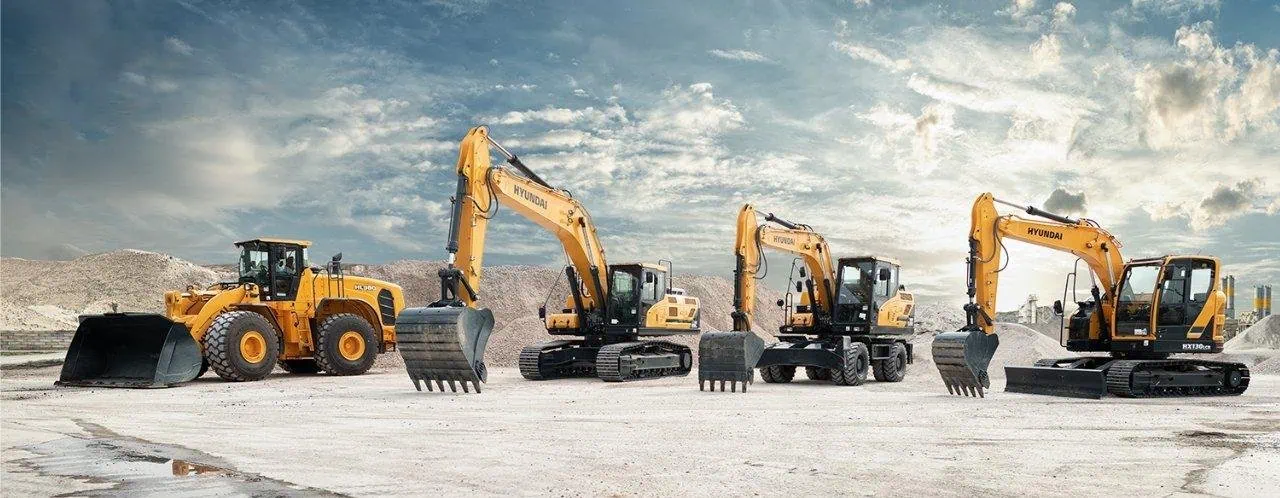
Look for Manufacturer Support
Ask the equipment supplier if the equipment you’re thinking about buying is still supported by the manufacturer. In some cases, the manufacturer may have discontinued a model. If the equipment breaks down, you’ll need parts to repair it. If the manufacturer no longer supports the machine, you might not be able to get the parts you need if things break down.
Parts Availability
Make sure that the equipment you’re buying is from a manufacturer that still offers support on the model. If it is discontinued, you might have a hard time finding parts when the machine breaks down. You could end up paying a lot for replacement parts and repairs that could cost more than the machine is worth.
Manufacturer Service
Investigate if the manufacturer has an authorized dealer or service center near you. Having a good support center nearby will help you if and when the machine breaks down and needs repair.
Review Maintenance and Repair Records
Ask the construction equipment supplier for a complete maintenance and repair history of the equipment you want to purchase. You want to know if the machine was well cared for with regular maintenance. Machines that have received regular maintenance usually end up costing much less to operate as they age because regular maintenance prevents major breakdowns.
Service Logs
Ask for the service log. Many times, a good construction equipment supplier will have a detailed service log that will tell you every single repair, piece of maintenance, and any part that’s ever been replaced. All this information tells you a ton about the condition and how the machine has been maintained.
Previous Owner Details
If you can contact the previous owner, talk to them about the machine. Have they had problems? How have they used the machine? Get as much information as you can from people who have used the equipment. This will help you understand the true condition and how it has been cared for throughout its life.
Why Communication is Key When Dealing with a Construction Equipment Supplier?
Communication with a supplier is important. Because if you and the supplier don’t clearly understand each other, someone’s going to get mad. Whether it’s going to be you because you didn’t get what you expected, or it’s the supplier because they don’t understand what you wanted. When misunderstandings occur, it often leads to delays, unexpected costs, and you missing project deadlines. Always make sure the supplier you are working with communicates clearly.
Set Clear Expectations From the beginning, set clear expectations with the supplier. Have a discussion about the condition of the equipment, when it will be delivered, and how you’re going to pay for it. The supplier should provide you with a detailed contract or service agreement for you to sign. This agreement or contract should cover all parts of the transaction in detail. This includes the condition of the equipment, delivery times, payment terms, and so on. The agreement between you and the supplier should cover everything. This process makes sure that both parties understand what’s going on and are in agreement.
Terms and Conditions The terms and conditions of your agreement should be detailed in the contract. They will state payment terms, warranties, delivery time, and what happens if there are any issues or delays. Timeline Clarity The contract should outline when the equipment will be delivered. Understand that if there is a delay in obtaining the machine, it will delay your construction project. Be sure that your contract outlines this information so that you can take the appropriate steps if the equipment is delivered late.
If all else fails, in the end, good communication ultimately saves the day. The best supplier is going to be the one that talks to you. When you’re choosing a supplier to buy construction equipment from, you want someone who’s going to be in your face, sending you information, telling you what’s happening with your equipment, and letting you know if something goes wrong. If you’ve got a supplier who keeps you informed, it’s a lot easier for you to make changes if you need to.
Resolve Problems No matter how well you plan, things still might go wrong when you’re trying to buy something. So the best supplier is the one who’s going to respond to you. You need a company that’s willing to talk to you and let you know what’s going on with the equipment you’re trying to buy. The best way to handle a problem is with a supplier who keeps you informed. If delays happen, having someone keep you up-to-date makes it a lot easier for you to make changes if needed.

How to Choose the Right Construction Equipment Supplier for Your Project?
In the end, the equipment supplier you choose depends on your specific needs. Let’s talk about you now. What do you need, and what do you expect from a Construction Equipment supplier?
Assess Your Equipment Needs
Different construction projects require different types of equipment. Some projects need excavators, others need bulldozers, while others need cranes. You need to make sure the supplier offers the specific types of equipment that you need. They need to have the right type of equipment that you are going to need for your project. Look for a supplier that offers a few different brands of equipment. They should offer a variety so you can find exactly what you need at a price that fits your budget.
Consider Equipment Availability
Check Availability If you have large projects, one machine that doesn’t show up could bring the whole project to a halt. Make sure the supplier has all of the equipment available to ship when you need it.
Evaluate Pricing and Payment Terms
Look at Pricing Do look at the pricing, but pricing shouldn’t be your only factor. Work with the supplier that offers you a fair price relative to the market. You don’t want to be paying too much for the machine, but you also want to have some confidence that you’re buying a piece of equipment that you can use. Make sure that whatever price you’re paying meets the quality standards you have in mind for the machine.
How to Build a Long-Term Relationship with Your Construction Equipment Supplier?
Build the relationship. If you plan to buy more construction equipment in the future, then plan to find a construction equipment supplier you can work with over and over again. The more you buy, the more likely they are to give you good service and better pricing. Building a relationship usually means you’ll get better service.
- Set Up Communication Let the supplier know upfront what you expect from them in the way of communication. Help foster the relationship by communicating and giving feedback where it’s due. If the supplier is doing a great job, tell them. Problems? Address them quickly. Let the supplier know anything you might need from them to keep doing business with them in the future.
- 2. Keep the Orders Coming If you always buy from the same supplier, you are more likely to get better prices, better service, and even better deals in the future.
- 3. Be Professional If there’s an issue, address it professionally and right away. How you handle problems really tells a company a lot about the kind of person they are doing business with. Addressing an issue directly and working toward a solution is something a good supplier will respect.

Summary
Choosing the right equipment supplier for your construction project is a make or break decision. By focusing on the most critical issues, such as the quality of the construction equipment supplier , adequate support services, reasonable payment terms, and good communication, you are most likely to make a smart decision.
Most importantly, if you are going to buy a lot of equipment in the future, plan to work with a supplier who is going to give you great service. 90% of the time, people who give great service also give great pricing. The goal is to identify the suppliers you plan to work with long-term. Build a relationship with them. Terminology, service, and periodic check-ins can make things much better for you in the long run.For more information or professional advice, feel free to contact us.

